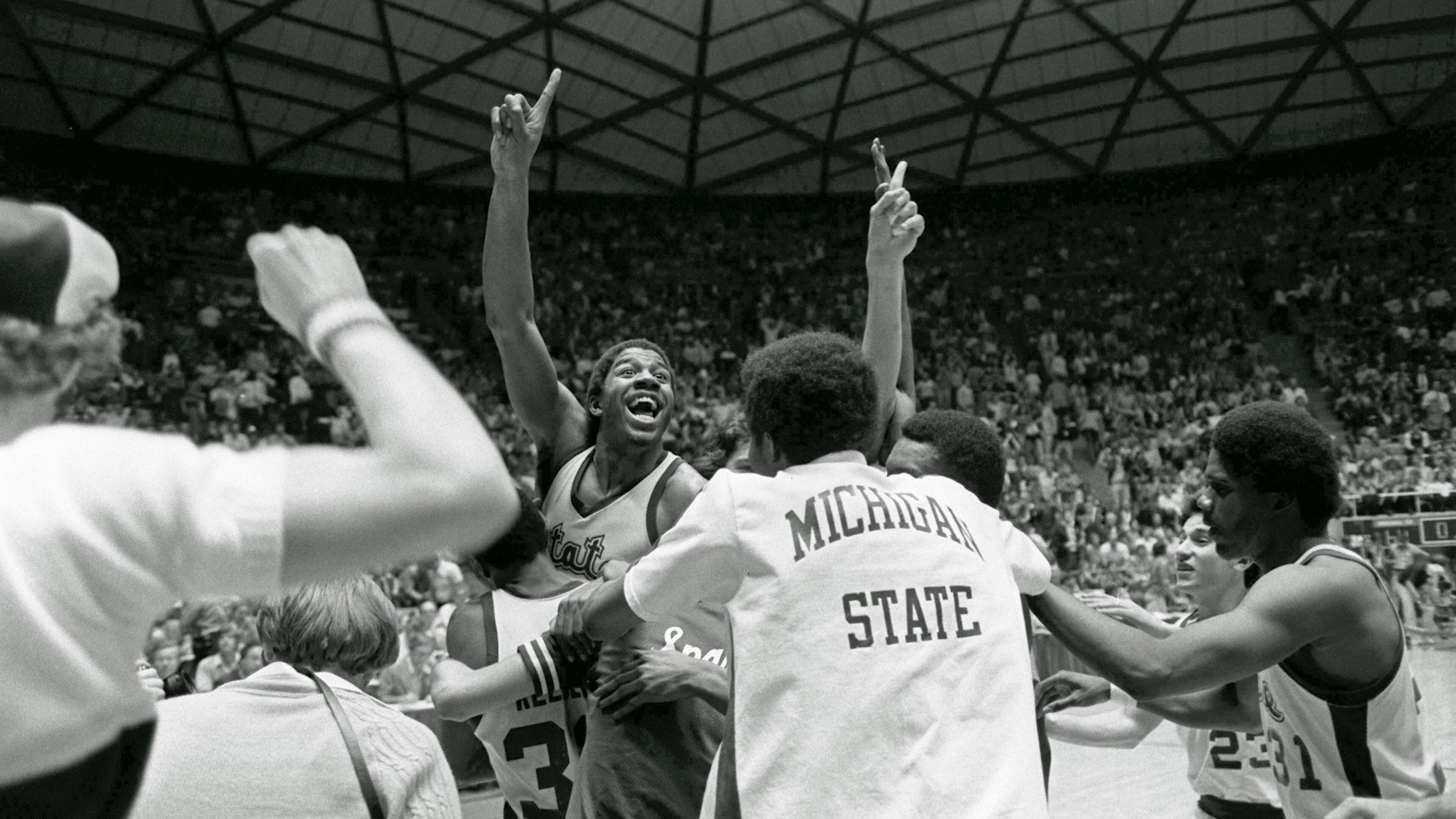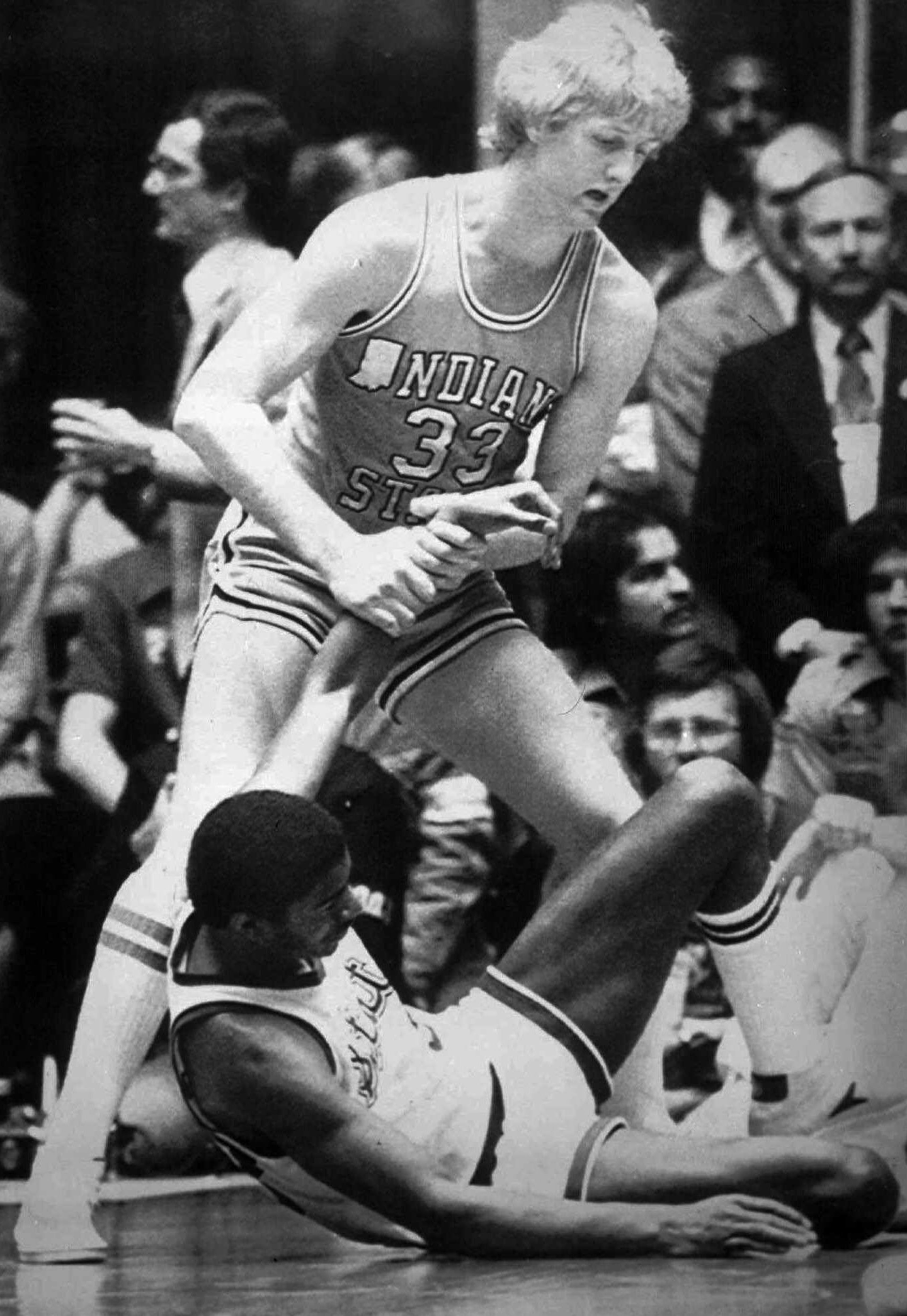Top 10 Greatest Final Fours of all-time: No. 10 — 1979

There won’t be a Final Four this year — Atlanta’s loss after the NCAA Tournament was canceled due to the coronavirus pandemic. However, The Atlanta Journal-Constitution’s Mark Bradley, a 2015 inductee of the U.S. Basketball Writers Association Hall of Fame, will present his list of the Top 10 Final Fours of all-time. The list will be presented in reverse order, culminating with the greatest men’s basketball championship.
Today: No. 10 - 1979
Many folks would put this at/near the top. The championship pairing of Magic Johnson and Michigan State against Larry Bird and Indiana State remains the most-watched game in college basketball annals. But my belief has long been that Magic-Bird for the NCAA title did more for the NBA, where those two would play their next competitive game, than for the collegiate brand.
(Part of my reluctance to put this Final Four higher is because, in the spring of 1978, cub reporter Bradley covered Magic and Bird as teammates on a touring team of U.S. collegians. I’d seen them on the same court before. I’d even interviewed Bird, who spent the 1979 season mostly refusing to speak to the press.)
As for the Final Four itself: It began abominably. Michigan State beat Penn of the Ivy League in a semifinal known to media types as “Timeout, Pennsylvania.” The halftime score was 50-17. Sports Illustrated reported that Greg Kelser, the Spartans’ second-best player, turned to press row when it was 38-8 and said, “We’re doing it to them, aren’t we?”

The second semifinal was a classic. No. 1 Indiana State had gone unbeaten through the Missouri Valley Conference playing under Bill Hodges, who’d begun the school year as an assistant but was bumped up after head coach Bob King suffered a heart attack and brain aneurysm in October. The unbeaten Sycamores had fought the how-good-are-they-really battle for two months, and they’d made it to Salt Lake via a breathless victory over Arkansas in the Midwest Regional. Waiting was DePaul, which upset UCLA in the West final — held in Provo; for one shining March, Utah was the center of the hoops universe — behind freshman Mark Aguirre.
Bird nearly had a quadruple double against the Blue Demons — 35 points on 16-of-19 shooting, 16 rebounds, nine assists and 11 turnovers. (He was dealing with a sore thumb.) Bob Heaton, a right-handed sub whose left-handed shot from the lane had beaten Arkansas, put Indiana State ahead with a layup in the final minute. Aguirre missed at the end. Indiana State was 33-0. If that was the semi, how good would a final against Magic Johnson be?
NBC’s Monday night telecast began with a song from Bob Fosse’s “Pippin.” Its title: “Magic To Do.” Magic Johnson did his bit, finishing with 25 points, seven rebounds and five assists. (Also six turnovers. Ball security wasn’t a priority that long weekend.) Kelser dunked five times. The Spartans led by nine at the half and 11 at the end. Bird missed 14 of 21 shots and had nearly as many turnovers (six) as baskets (seven). The grand confrontation was less than grand. He and Magic would, however, meet many more times. Just not as collegians.
As for Hodges: He wouldn’t work another NCAA tournament game. He lasted three more seasons at Indiana State. By 1986, he was coaching Georgia College, an NAIA school in Milledgeville. He took the Mercer job in 1991. He spent six seasons in Macon, going 62-107. Speaking last year of 1979, Hodges told Mike Lopresti of NCAA.com: “It went downhill from there.”

